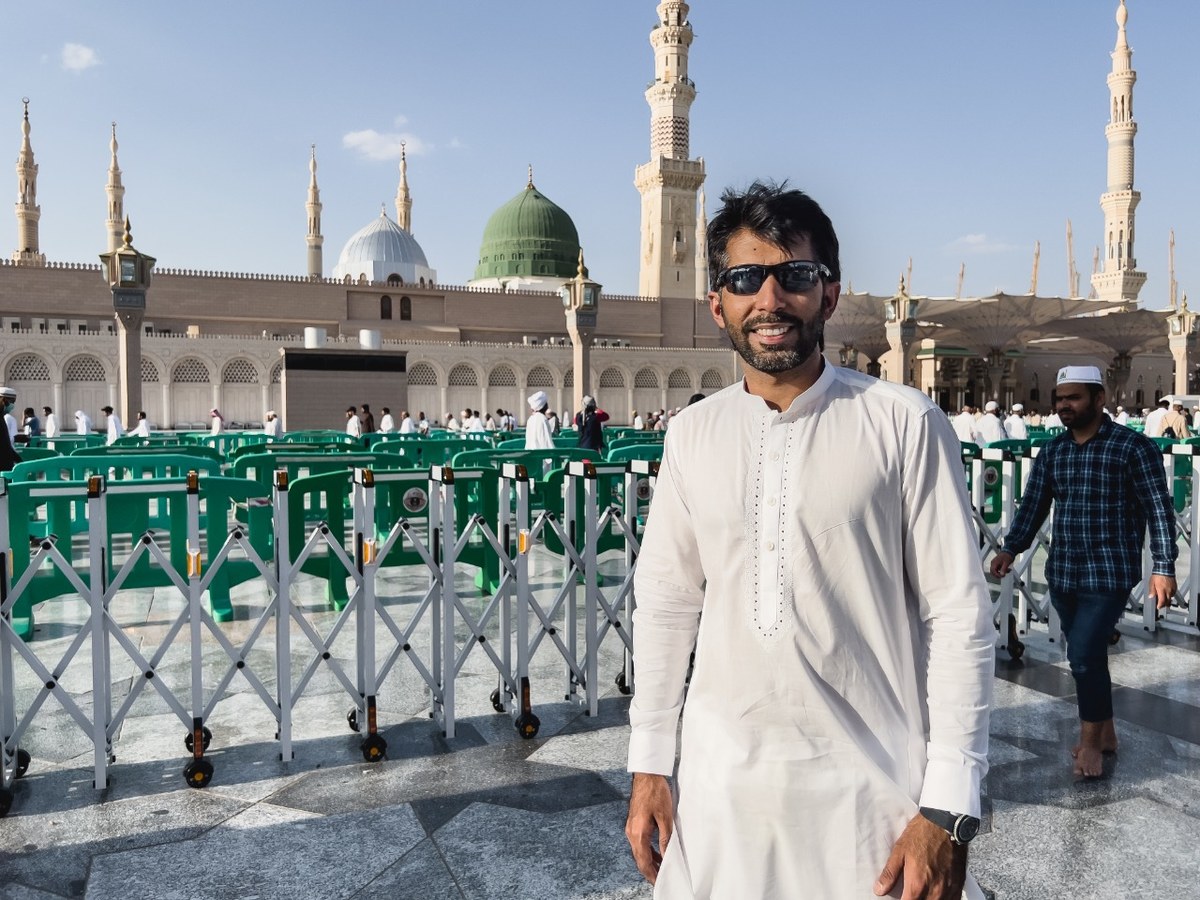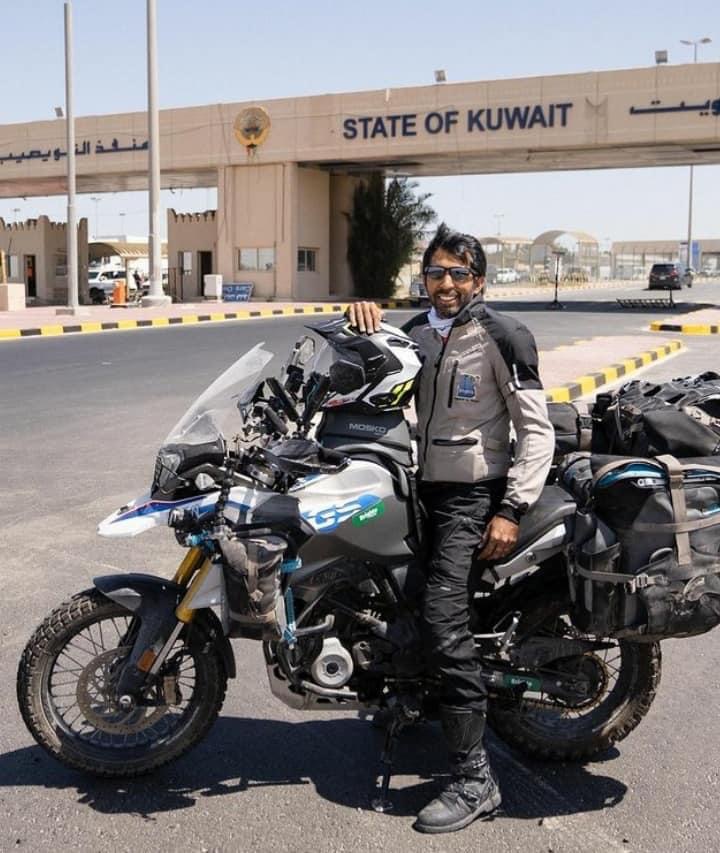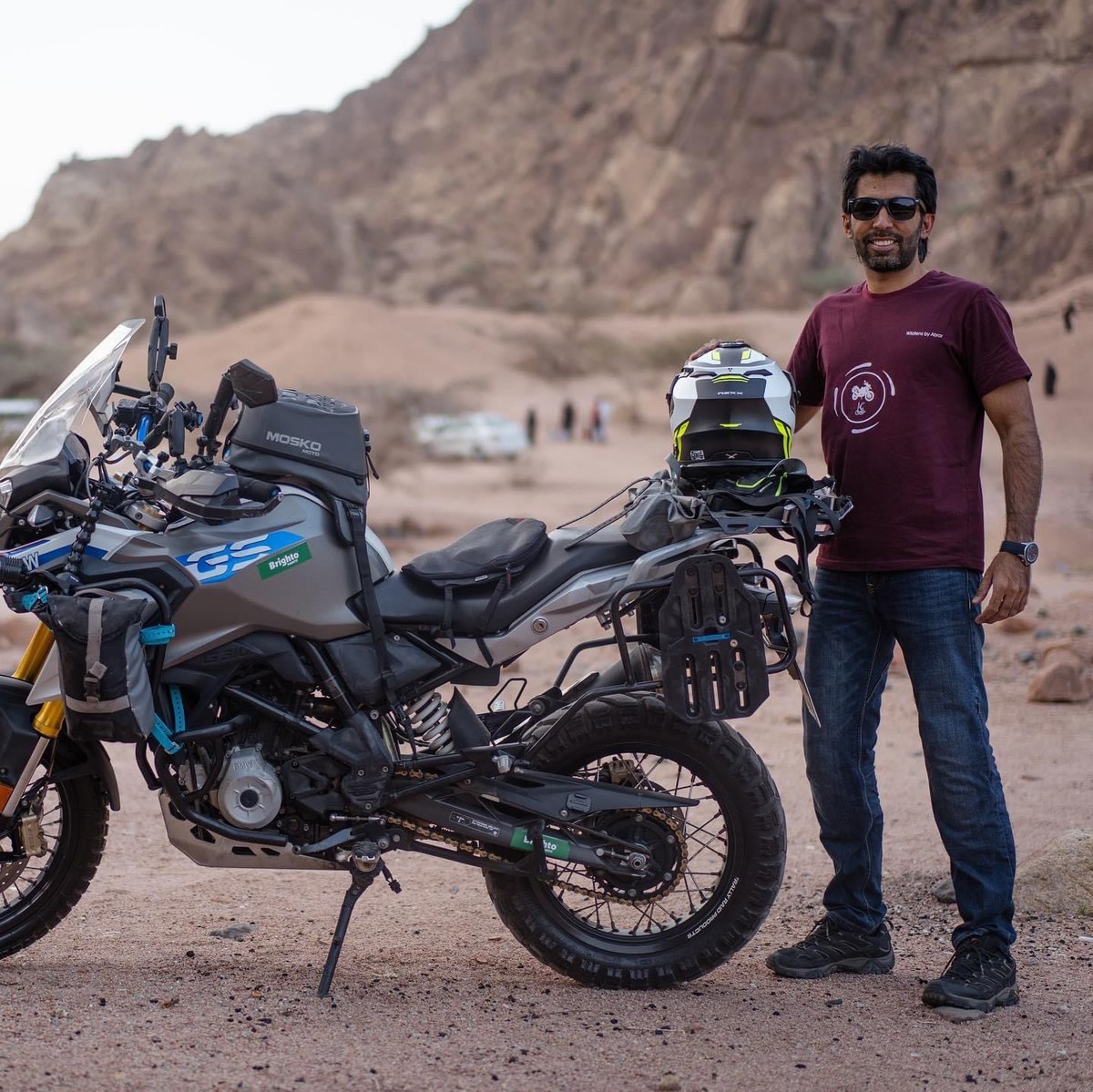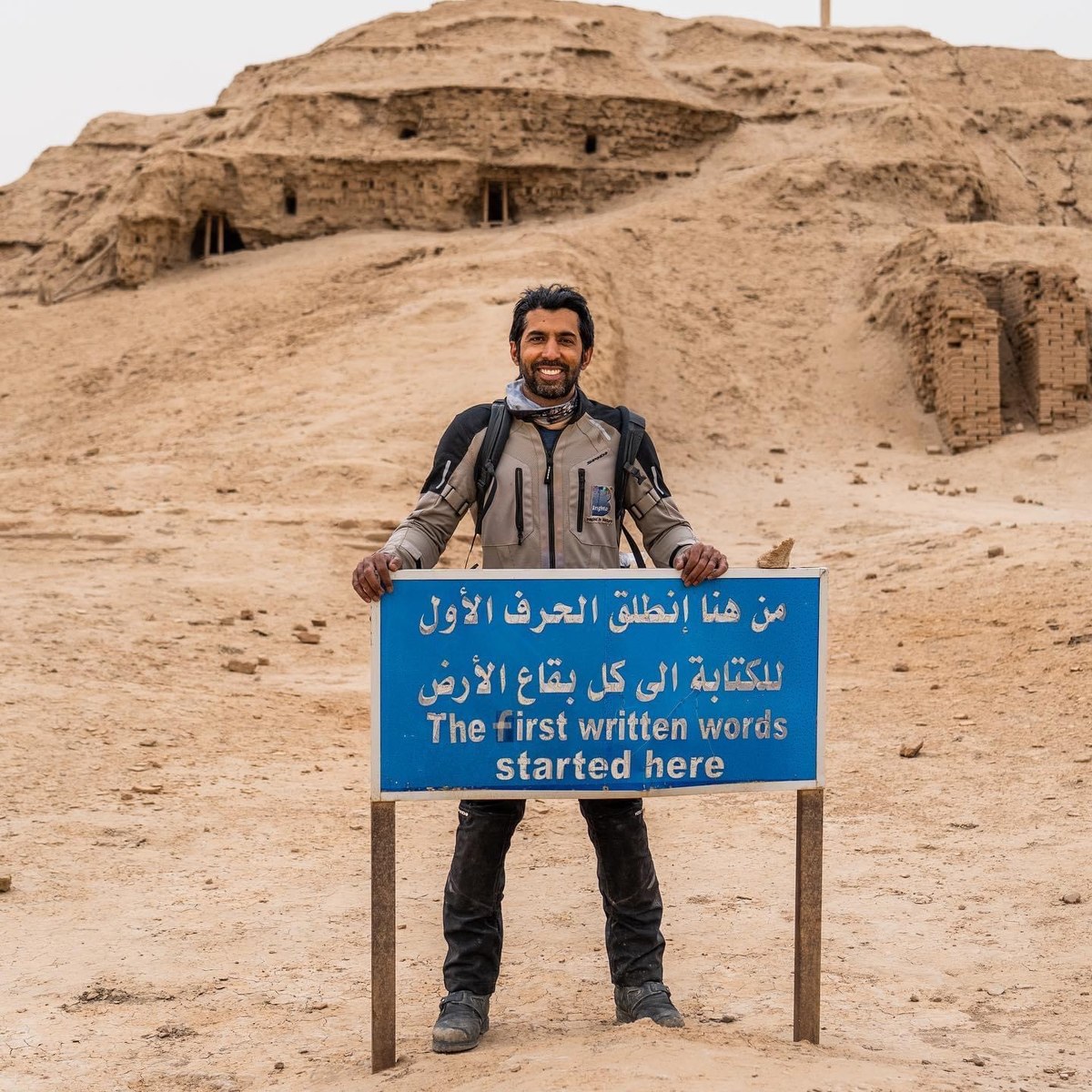ISLAMABAD: Pakistani biker and vlogger Abrar Hassan had already traveled to over 80 countries, at least 12 of them on his motorcycle, by the time he decided this year it was time to pursue possibly his greatest dream: a bike ride to Saudi Arabia to perform the Umrah pilgrimage.
On February 9, Hassan set out from his hometown of Nankana Sahib in Pakistan’s Punjab province, embarking on a journey that entailed crossing three continents and riding for 50 days before he arrived in Madinah on March 27. From there, he went to Makkah, Islam’s holiest city, and performed the Umrah pilgrimage.
“It was always my dream [to travel to Saudi Arabia on a motorbike] and it came true this year,” Hassan, a mechanical engineer with a German automotive company, told Arab News in video messages from Madinah.

Pakistani biker and vlogger Abrar Hassan at the Prophet's Mosque in Madinah, Saudi Arabia, on April 5, 2022. (Courtesy: Abrar Hassan)
“There are probably some feelings you can’t describe in words ... So, everything has been surreal for me and I absolutely loved every single moment of it.”
The Pakistani biker, who has loved adventure and photography since he was a child, said it was an “amazing experience” to cross multiple borders and meet so many people along the way. But the special blessing was to arrive in Madinah just a few days before the beginning of the fasting month of Ramadan and keep the first fast of the year there.

Pakistani biker Abrar Hassan enters Saudi Arabia from Kuwait on a motorcycle on March 27, 2022. (Courtesy: Abrar Hassan)
Hassan expressed gratitude to the people of Saudi Arabia for the “warm welcome” accorded him and the love he had received. One memorable experience he narrated happened soon after he entered Saudi Arabia and involved a group of women selling tea.
“When they came to know that I was traveling on a motorcycle from Pakistan to perform Umrah, they didn’t take any money from me and said ‘you are our guest’,” he said.

Pakistani biker and vlogger Abrar Hassan at the Wadi Al-Baida in Madinah, Saudi Arabia, on May 10, 2022. (Courtesy: Abrar Hassan)
A video of Hassan’s interaction with the women went viral on the Internet and gained him fame in the kingdom: “Whenever I go out with my motorcycle ... the support and love I am receiving right now is just incredible.”
The affection compelled Hassan to extend his stay in the kingdom and explore other cities.

Pakistani biker and vlogger Abrar Hassan passes through the ancient Iraqi city of Uruk on his way to Makkah, Saudi Arabia, on March 11, 2022. (Courtesy: Abrar Hassan)
“I have visited Riyadh, Madinah, and Makkah so far, but in the next few days I am starting my travel to different cities of Saudi Arabia,” he said. “I am going to Jeddah, Abha, Al-Bahah, Jazan, and AlUla near the Jordan border.”















